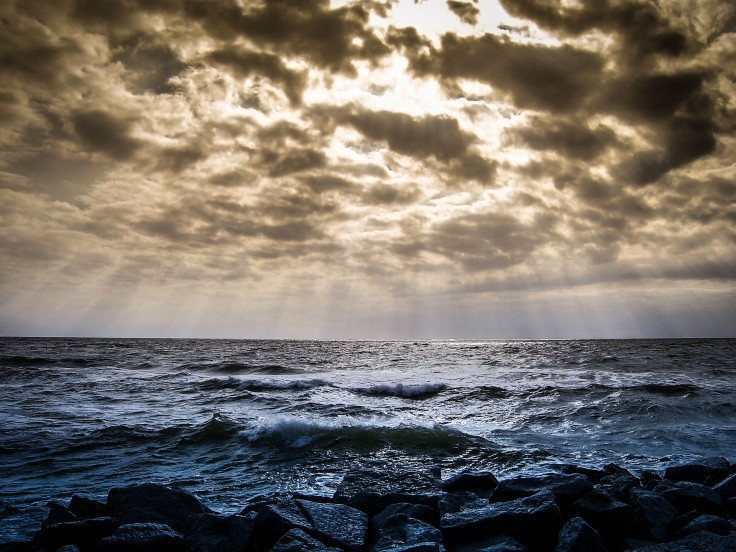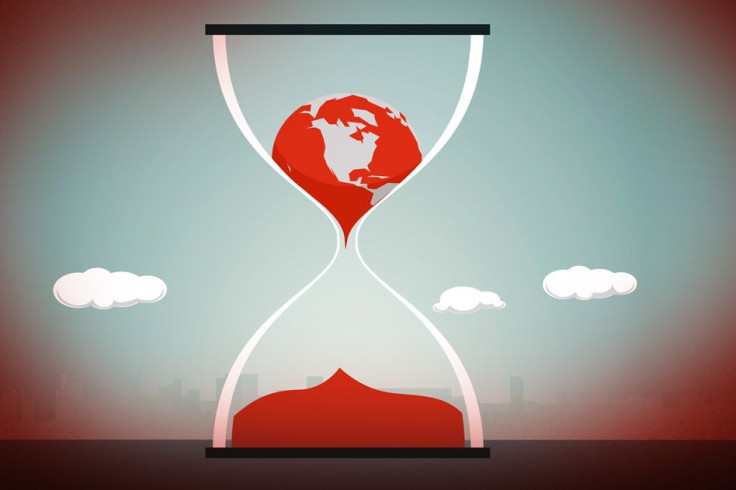Climate Change Point Of No Return: Scientist Gives Mass Extinction Deadline

If humans don’t change the amount of carbon going into Earth’s oceans by 2100, it could be too late to stop the chain of events leading to another mass extinction on this planet, according to one scientist’s mathematical calculations.
A geophysics professor from the Massachusetts Institute of Technology analyzed the ups and downs of carbon in Earth’s history and their links to the five mass extinction events that occurred over the past 540 million years to identify where certain fateful thresholds were crossed. Once those benchmarks were passed, the Earth’s environment was thrown into an unstable state that eventually led to a mass extinction — and our planet is on track to have this happen again, Daniel Rothman said.
In each of those devastating prehistoric events, more than 75 percent of marine animals went extinct.
According to a paper the scientist wrote, published in the journal Science Advances, mass extinctions occur when changes in the carbon cycle happen too quickly and too heavily for Earth’s living creatures to adapt to them. In the case of Earth’s present, the amount of carbon going into the ocean from human sources could be the tipping point and to create an unstable environment, and he calculated that there would have to be about 310 gigatons of carbon in the water for this to happen. At the pace the element has been increasing in our oceans, that would happen by 2100.
“Multiple causes may also be responsible for a ‘sixth extinction,’” the paper notes. “However, the anthropogenic disturbance of the carbon cycle merits its own appraisal.”
In the past, carbon would have been injected into the environment in such massive quantities during a tremendous increase in volcanic activity, for example.
The effect won’t be immediate, but we will have crossed the point of no return.
“It would take some time — about 10,000 years — for such ecological disasters to play out,” MIT explained in a statement about the research. But about 83 years from now “the world may have tipped into ‘unknown territory.’”
At that point, Rothman said, the carbon cycle would become unpredictable, a type of behavior that in Earth’s past has been linked to mass extinction events.
“How can you really compare these great events in the geologic past, which occur over such vast timescales, to what’s going on today, which is centuries at the longest?” Rothman said about what spurred him to his calculations. “So I sat down one summer day and tried to think about how one might go about this systematically.”
His math looks at the relationship between changes in the carbon cycle and time.
“It became evident that there was a characteristic rate of change that the system basically didn’t like to go past,” he said in the MIT statement.
Four of the five mass extinction events came after that higher rate of change.
According to Rothman, taking as long as 2100 to get 300 gigatons of carbon into the ocean is the best-case scenario — it’s possible that will happen much sooner.
“This work points out reasons why we need to be careful, and it gives more reasons for studying the past to inform the present,” he said.

© Copyright IBTimes 2024. All rights reserved.




















